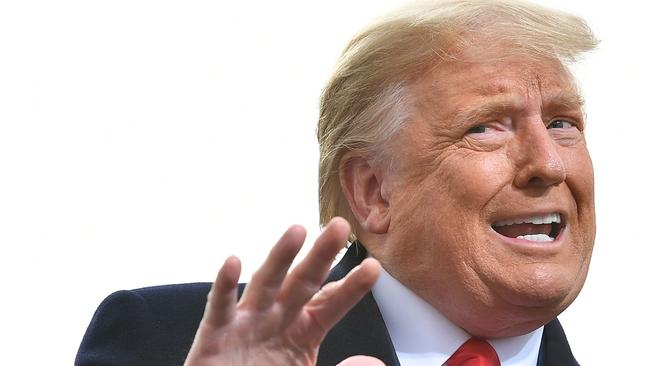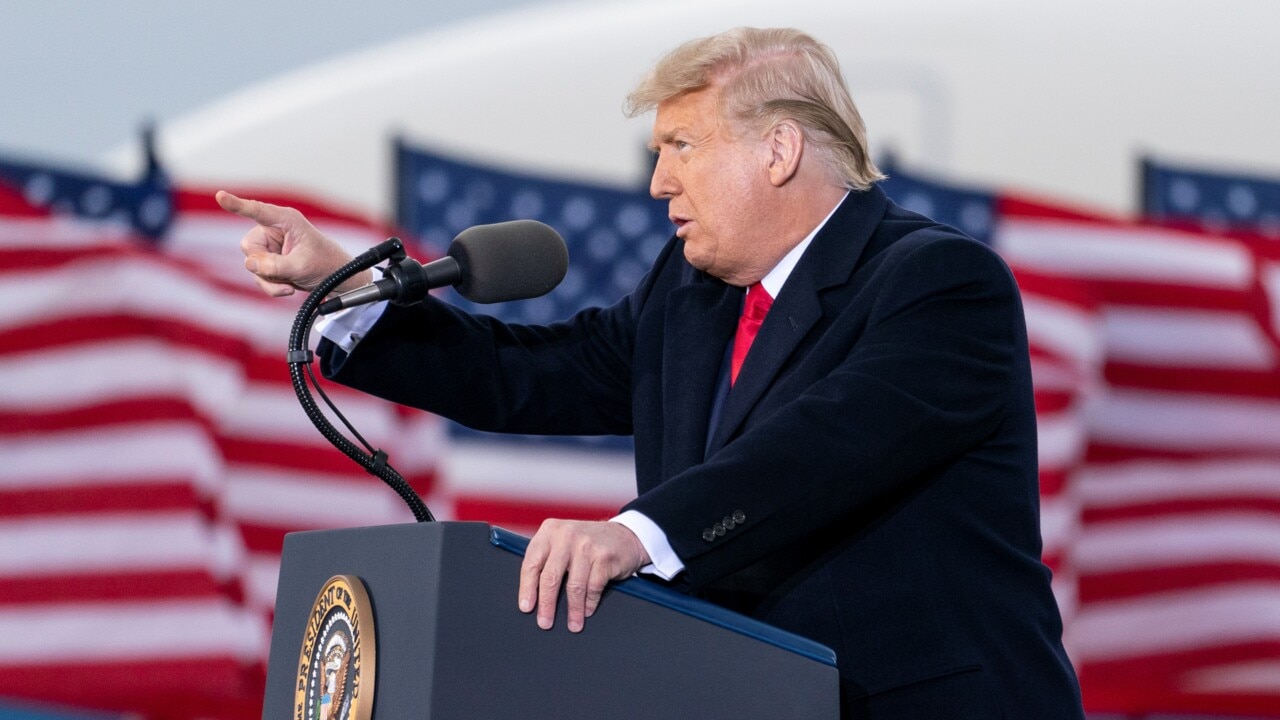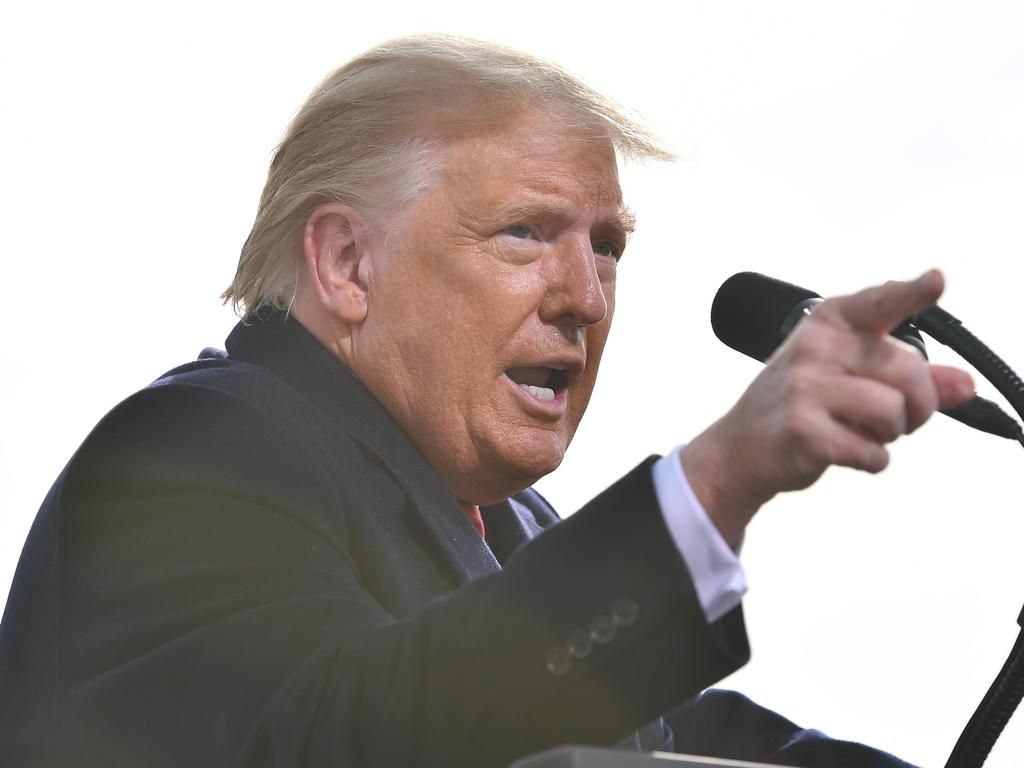Donald Trump is on the ropes, but Biden’s radical agenda may be costly

Donald Trump is on the ropes. He has presided over a pandemic that has claimed almost 225,000 lives and his economic boom of low unemployment and rising wages has come to an abrupt and tragic end.
Add to this a racial crisis and it is no wonder the polls, betting markets and most pundits predict his downfall. According to Real Clear Politics, Joe Biden holds an average eight-point nationwide polling lead.
However, Trump is still in the fight. His rallies are big and boisterous. The spectre of emails once again haunts the Democratic presidential campaign. And the polling discrepancy in the crucial battleground states is narrowing.
If Trump scores another upset victory next week, the Democrats will have only themselves to blame. By lurching to what passes as the left in the American political context, Democrats, who lead comfortably in the nationwide congressional and presidential races, could help ensure the re-election of their nemesis.
Sound familiar? In 2019, with a solid polling lead, the federal Labor Opposition supported controversial policies on climate, property and franking credits. The result: Bill Shorten spooked enough Australians to re-elect the unpopular Coalition government. Could the radical agenda of the Democrats scare Middle America into re-electing Trump?

Simply put, the Democratic policies represent, in American terms, the most progressive change since Franklin Roosevelt’s New Deal in the 1930s. The party of JFK and Bill Clinton is becoming the party of Bernie Sanders and millennial socialist Alexandria Ocasio-Cortez.
It’s true that Biden, a Senate veteran from 1973 to 2009 before becoming Barack Obama’s vice-president, is instinctively a pragmatic centre-left politician with no firm convictions. Not for him the “democratic socialism” of the party activists. However, he is widely seen as weak and a Trojan horse for the increasingly dominant left wing of the party. In recent years, the centre of political gravity in the Democratic Party has shifted in a more progressive direction — from support for identity politics to more interventionist economic policies. Sanders himself boasts that the Democratic Party platform has been largely written by his people. Long gone are the days of Clintonian “triangulation” and the “Third Way”.
At the same time, left liberals who dominate the media and academe have helped create the intellectual climate for this process to take place. The rise of left-wing intolerance on American college campuses is far more evident than here. Cancel culture has more reach and influence across US institutions.
Democrats are also increasingly more focused on decarbonising the economy at a rapid rate, planning to make the US “carbon neutral” by 2035. During last week’s presidential debate, Biden said he would “transition” away from fossil fuels.
In response, Trump warned that curtailing oil and gas production would be enormously destructive, and he called on oil-rich states such as Texas, Pennsylvania and Ohio to take note.
Democrats calculate that the declining cost of renewable energy may lead to a sharp decline in demand for fossil fuel, which makes any transitioning easier. However, voters across oil, gas and coal states might think differently if they fear their livelihoods are threatened.

In any case, the main reason why US energy-related emissions have fallen 15 per cent since 2007 is because of the shale gas revolution, which has allowed cheaper natural gas to replace coal. Although Biden now says he won’t ban fracking, he would strangle it with regulations. If he loses crucial battleground states Ohio, Michigan and Pennsylvania, home to hundreds of thousands shale workers, he’ll know why.
Added to this are Democratic proposals to add justices to the Supreme Court to tilt the balance of power away from conservative jurists. In Australia, the aim of packing the courts means appointing judges within a fixed number of slots on the judiciary. In the US, stacking the courts usually means increasing the numbers of judges to the courts.
If the Democrats hold the House of Representatives (a likely prospect) and win the Senate (plausible), they could implement the kind of structural change that would make Washington more liberal. This includes an attempt to jettison the 60-vote Senate filibuster, which would forestall the need to compromise with the Republican minority.
That would allow Democrats to push progressive priorities, including the granting of statehood, plus two Senate seats each, for Puerto Rico and the District of Columbia. Could the fear of a permanent shift in partisan power scare even suburban college-educated Republicans, who are turned off by Trump’s polarising style of politics?
Still, with a pandemic and recession, Biden and the Democrats are poised to win big. However, if Trump shocks the media and political class again, it will be because the Republicans have convinced enough voters in crucial battleground states that Democratic policies, far from being moderate, are at odds with mainstream opinion.
Tom Switzer is executive director of the Centre for Independent Studies and a presenter at the ABC’s Radio National.






